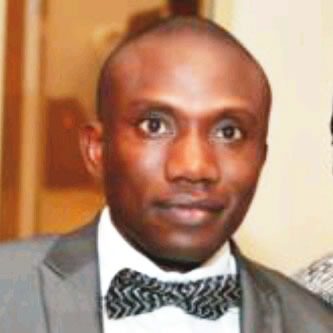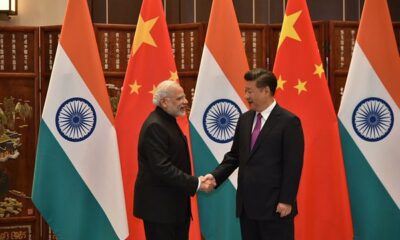Democracy & Governance
This way, corruption is going nowhere -By Niran Adedokun


Niran Adedokun
Let me start by restating the trite point that there is no society entirely free of corruption. Tendencies for compromises and self-gratification are part of the human nature and they are emotions that all mortals, irrespective of colour, race or religion are susceptible to in the absence of sufficient restraints. There, however, seems to be a consensus that this malaise bares a destructive pervasiveness in Nigeria.
This agreement is a main inspiration for the election of President Muhammadu Buhari in 2015. As a candidate, Buhari had what a majority of Nigerians saw as a sparkling personality. He was vocal about his hatred from the vain essence of the world and made the fight against corruption a major plank of his electoral campaign.
Two years on however, discussions around the impact of the anti-corruption war initiated by the President centres round tokenistic victories of recoveries from past national plundering and the removal of current appointees who have been caught in the same act that their principal vowed to curb.
And while at this assessment, Nigerians, usually too loving and awe-struck of their leaders, would also make excuses for the President. The most common these days is to hear,“Oh, President Buhari is a decent man, it is just the people around him who are bad. They just want to destroy his good works and the man knows nothing about it.”
Maybe, the President indeed has a lot of moonlighters around him but then, who do you blame for that? If I have no input in the selection of the people around you, why should I or anyone, even if they were “political godfathers”, take the blame for the misconduct of any appointee?
An inalienable prerequisite for leadership should, after all, be the ability to analyse other humans. So, I would rather blame the President for the failure to select his closest allies from among people who share his character and vision for the country.
There is another reason, though, why I think the attempt to situate the serial scandals that we have recently witnessed in high places, on those around the President is faulty. And I will explain.
Leadership experts insist that a major requirement for effective leadership is constant communication without which a team would feel lost or left behind. Dale Roach, an American leadership expert while recommending the visionary virtue to leaders notes that, “The challenge for every visionary leader is not to get so far ahead of the team in what they see that they leave them behind.”
A leader who creates a vision must therefore be able to articulate that vision, drive the same with passion and relentlessly until the end. It does not seem to me that President Buhari communicated his vision of a decent Nigeria to his lieutenants in such a way that they would have clarity.
Now, there is perhaps no other way in which lucid communication is important more than a reform aimed at the minds and behaviour of people.
When a leader sets out to deal with an indulgence from which a huge number of members of the society had benefitted for years, consensus building is an essential ingredient and that must start with those people who drive the vision with him. He must explain, persuade and convince his closest helpers about the need to stay above board and put a reprimand structure, obvious to them all, in place from the outset; something like the “sign your resignation” letter in advance that the President Olusegun Obasanjo’s leadership introduced to Nigeria.
This also brings to mind the exploits that the late Lee Kuan Yew made as Prime Minister of Singapore. When he became head of the country, Yew was said to have felt “sickened” by the decadence and corruption in his country. He promised to rid Singapore of graft. Members of his government were his first crop of pictures. They wore white shirts and trousers when they were sworn into office just to signal the purity of their intentions.
Yew delivered on his promise. Amongst a number of other initiatives, he communicated his vision and the repercussion of sabotage to his colleagues.
Anyone caught thereafter faced the consequences. One of those was Teh Cheang Wan, an architect, Minister of National Development and his long term associate. In 1986, Wan was investigated for accepting kickbacks from two real-estate developers. He committed suicide one morning leaving a note in which he apologised to Lee Kuan Yew and explained: “It is only right that I should pay the highest penalty for my mistake.” He was clear about the vision of the leader and knew the consequence of being caught at marring the same.
What we have seen in the last couple of months hints at a disconnect between the President and his aides. From the dismissed Secretary to the Government of the Federation, Babachir Lawal, to the Attorney-General of the Federation and Minister of Justice, Abubakar Malami, and his counterpart in the Ministry of Interior, Lt. Gen. Abdulrahman Dambazau, on the Abdulrasheed Maina matter, one can easily conclude that there was either no communication of the vision at all or the corollary of falling out of line was not stated. This has led to a confusion of the lines between right and wrong and an underestimation of the punishment inherent in contravention.
This point can be further illustrated by the ongoing drama between the Inspector General of Police, Mr. Ibrahim Idris, and Senator Isah Misau representing Bauchi Central Senatorial District. While Misau was recently arraigned by the Office of the Attorney General before the High Court of the Federal Capital Territory, for alleged injurious falsehood against the Nigeria Police Force and the number one cop, there is no evidence of even an investigation of the allegations against the IGP.
Yet, these are weighty allegations that a government who is bent on changing perceptions about the country should quickly investigate and lay to rest. Misau, Chairman, Senate Committee on Navy, had alleged that the IGP made N10bn monthly from oil companies and other private individuals who enjoyed special protection from the security agency. He also alleged that police officers paid as much as N2.5m to get special promotion and posting through the Police Service Commission and that the IGP diverted money meant for the purchase of Armoured Personnel Carriers, Sport Utility Vehicles or other exotic cars. Misau also alleged, penultimate week, that the IGP was involved in amorous relationships with members of the force and had indeed got married to one officer who was promoted ahead of her peers not too long ago. Finally, he alleged that the IGP donated two Sports Utility Vehicles to the First Lady, Aisha Buhari. Although the Force Public Relations Officer, Mr. Jimoh Moshood, a Chief Superintendent of Police, recently explained that a Toyota Sienna Bus and a Toyota Hiace Bus were vehicles approved for police personnel in the convoy of the President’s wife following a request from her Aide de Camp, one is forced to wonder if the protocol is for the police to provide operational vehicles for the convoys of executives and their wives across the country.
What I am saying is that, it does not appear that President Buhari has successfully communicated his vision of a corruption-free society to those who work with him. It does not also seem that he has given them a sense of what punishment awaits anyone who dips his hands into public coffers or circumvents the laws of the land in anyway.



















